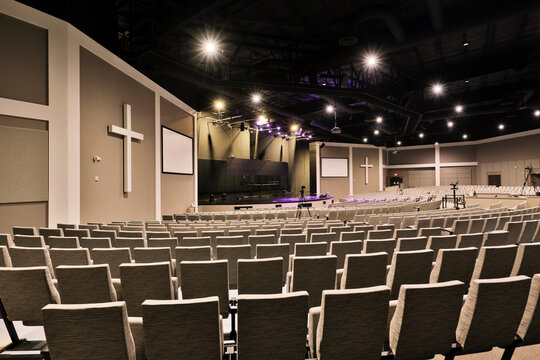The Masks We Wear to Hide Our Brokenness
Most people don’t wear masks because they’re fake. They wear them because they’re tired. Tired of being judged. Tired of being misunderstood. Tired of feeling like their honest questions or pain made them a problem.
You might know that feeling.
At some point, maybe you got the message, spoken or not, that church wasn’t a place for your real story. That to belong, you had to behave. The messier parts of you need to be cleaned up or kept quiet.
So you smiled when you wanted to scream. You served when you were barely holding it together. You said “I’m good” when you were anything but.
Not because you were being dishonest, but because you didn’t feel safe. You put on the mask to protect yourself. To keep from being labeled. To avoid one more disappointment.
But over time, the mask stops feeling like protection and starts to feel like prison. You forget who you were before you started hiding. You wonder if it’s still possible to be seen and loved at the same time.
If that’s you, I want to say: you’re not the only one. And you’re not crazy for walking away from a place that made you feel like you couldn’t be real.
The Church, the Tired, and the Disillusioned
Many of us are carrying wounds we were never allowed to name: religious wounds, shame, and questions that were met with silence or suspicion.
The pain isn’t just what happened. It’s what convinced us to do:
Hide. Perform. Numb. Walk away.
But what if your brokenness isn’t something to fix or cover up?
What if it’s the exact place where healing begins?
A Growing Reality: Why So Many Are Walking Away
In the U.S., just 30% of adults now say they attend religious services weekly or nearly weekly. Meanwhile, one third report going at least once or twice a month, but nearly half seldom or never attend in person.
These numbers reflect a deeper truth: identity and attendance are diverging.
Meanwhile, there’s hopeful news. Barna reports that 66% of U.S. adults now say they’ve made a personal commitment to Jesus that remains meaningful in their life, up from 54% in 2021.
You can be done with the church as you knew it and still be in love with Jesus. That is a tension many are holding.
Many leave faith communities not because they reject God, but because the religion they encountered felt rigid, performance-driven, and conditional. They were told that belonging hinged on behavior. That performance meant acceptance, while brokenness meant failure.

You Might Have Felt This Way
Maybe you’ve walked away from church.
Or maybe you’re still attending, but you feel like a ghost in the room; smiling, singing, and disappearing just as fast.
You might not have left because you stopped believing in God.
You left because it started to feel like you had to earn your place.
Like, belonging was conditional.
Like you could only stay if you acted the part, kept quiet about your doubts, and held it all together. If that sounds familiar, you’re not alone. In fact, you’re part of one of the most widespread spiritual patterns of our time.
Recent studies from Barna, Pew, and Lifeway all point to the same trend:
A growing number of people are stepping away from church, not because they stopped loving Jesus, but because they encountered a religious system that felt rigid, performance-driven, and unsafe.
- Many former churchgoers say they felt pressure to appear perfect.
- Others say their honest questions were met with suspicion.
- Some experienced subtle or overt rejection because of doubt, identity, politics, mental health, or past decisions.
None of that culture surprised Jesus.
In fact, He confronted it, over and over again.
Read more about spiritual healing when you’ve been pushed to the margins.
Jesus Challenged This Culture Too
If you’ve felt the weight of religious pressure, Jesus has something to say. You might have heard that verse before.
In Matthew 23:4, He describes the religious elite like this:
“They tie up heavy, cumbersome loads and put them on other people’s shoulders, but they themselves are not willing to lift a finger to move them.”
Honestly, it still hits.
Heavy expectations.
Unspoken rules.
Spiritual hoops to jump through.
All while the people enforcing them keep their distance.
Rules without relationship.
Expectations without grace.
Correction without compassion.
That might be the exact thing you walked away from.
But here’s the twist. Jesus wasn’t defending that system. He was calling it out. He didn’t show up to keep people in line. He showed up to break the cycle. To step right into the places where people were tired of pretending. Where the masks were already starting to crack.
And instead of putting more pressure, He offered something better. He offered belonging.
“Come to me, all who are weary and burdened, and I will give you rest.” (Matthew 11:28)
The High Cost of Pretending
Religious trauma is real. It often doesn’t come from a single event but from years of internalizing the message that your honest self isn’t welcome.
- Your questions are dangerous.
- Your grief is a lack of faith.
- Your identity is unacceptable.
- Your trauma is rebellion.
- Your doubt makes you weak.
These messages stick. They don’t just hurt. They shape how you see yourself, others, and God.
When church becomes a stage for performance instead of a place for presence, masks become survival gear. But the longer you wear the mask, the harder it is to remember who you really are.
Psychologists call this spiritual struggle. It often shows up as anxiety, depression, or a fractured view of God. But here’s the truth: spiritual struggle doesn’t mean you’re losing your faith. It means you’re fighting for what’s real.
And if you’ve ever felt spiritually exhausted from pretending to be “fine,” let me assure you. Being fine is overrated. I’ve been “fine” right before a complete emotional meltdown in the Costco parking lot. Jesus met me there too.
Brokenness Isn’t a Barrier. It’s the Beginning.
In Luke 5, Jesus meets Levi. A tax collector. A man seen as corrupt, rejected, and labeled by both society and religion. Jesus meets Levi. A tax collector. That phrase doesn’t just mean “guy who worked for the government.” It meant traitor. Thief. Outcast.
Tax collectors in first-century Israel were Jewish men hired by the Roman Empire to collect taxes from their own people. It wasn’t just a bad job. It was a collaboration with the enemy. Rome was the occupying force, and tax collectors were seen as helping them exploit their own nation. They were allowed to collect more than required and pocket the extra, essentially legalized extortion.
They were socially exiled and spiritually condemned.
They weren’t allowed in synagogues.
They couldn’t testify in court because their word was considered worthless.
People spat when they passed.
Families disowned them.
Religious leaders used the phrase “tax collectors and sinners” like it was one dirty word.
Nobody trusted them. Nobody respected them. Nobody loved them.
So when Jesus sees Levi, this man with the worst possible reputation, and says, “Follow me,” it’s not just surprising. It’s scandalous.
Jesus wasn’t just inviting a sinner. He was inviting someone everyone else had already given up on. Someone the system had labeled irredeemable.
And he didn’t ask Levi to clean up. He didn’t ask for restitution first. He simply looked at him and said, “Come with me.”That one moment destroyed years of religious gatekeeping with one sentence.
That’s it.
And Levi did. He left everything and followed.
Because when someone sees you like that, really sees you, and still wants you close, how can you keep hiding?
The Chosen I think nailed it.
Can you imagine yourself in that moment? The desire to be seen and to respond? That is what the church can be again. A celebration of people who are broken, finding the love of Jesus, and responding to his invitation.
Then something beautiful happens. Levi throws a party. And guess who shows up? Other tax collectors. Outcasts. The broken ones. The people the religious world had written off.
And Jesus is right there, in the middle of it.
Then Religion Trys to Shut the Door
After Jesus calls Levi and sits down to eat with him and his crew, the Pharisees show up. And, true to form, they don’t like what they see.
They aren’t angry that Levi is being changed.
They’re angry that Jesus didn’t make him earn it first.
Luke 5:30“The Pharisees and their scribes began grumbling to His disciples, saying, ‘Why do you eat and drink with the tax collectors and sinners?’”
This wasn’t just a casual complaint. This was policing. This was gatekeeping. This was religion trying to put Levi back in the box he had just stepped out of.
Put the label back on.
Put the mask back on.
Remind him who he used to be.
Because that’s what religion without love does.
It cares more about behavior than belonging.
It looks clean on the outside but builds walls instead of inviting people in.
And let’s be honest. If you’ve been in church for any length of time, you’ve seen this spirit.
Some of us have lived it. Others of us have become it.
We all have a little Pharisee in us.
It’s the voice that says, “I had to clean myself up. So should they.”
It’s the pressure to look put-together, even when you’re breaking inside.
It’s the impulse to withhold grace until someone earns it.
It’s subtle. But it shows up fast the minute we start performing instead of receiving.
We start hiding our need.
We start judging other people’s mess.
And before we know it, we’re reinforcing the very system that once made us want to walk away.
Dallas Willard once said:
“We are accepted by God not because of what we do, but because of who He is. And from that place of acceptance, we are free to grow.”
Did you catch that?
Acceptance comes first.
Not cleaning up. Not getting in line.
Not praying louder or pretending harder.
Only from the safety of belonging can real transformation begin.
Jesus didn’t tell Levi to prove himself.
He just said, “Follow me.”
And Levi did.
But Levi didn’t stay in the tax booth.
He walked out. Left the labels. And followed.
Because when you’re loved like that, really seen and still invited in, you don’t stay stuck.
Because grace changes people in ways shame never can.
We Don’t Obey to Be Loved. We Obey Because We Are.
Levi didn’t clean up to get the invitation.
He got the invitatio, and that changed everything.
Jesus looked at him, not with suspicion, but with compassion. Not with critique, but with call. And Levi responded. He left the tax booth. The label. The shame. The security of the life he knew.
Why?
Because love has a way of waking something up in us.
When Jesus sees you with love, not judgment, something inside dares to believe that healing is possible. That you don’t have to stay stuck. That who you were isn’t the end of your story.
We don’t follow Jesus to get Him to love us.
We follow because He already does.
Love moves first.
Love calls us out.
And love walks with us. But it’s not always easy.
Sometimes love confronts the fear we’ve learned to live with.
Fear of what people will say if they knew the real us.
Fear of what might happen if we take off the mask.
Fear that the labels others have stuck on us might be true.
And yet the invitation remains
“There is no fear in love. But perfect love drives out fear, because fear has to do with punishment. The one who fears is not made perfect in love.” 1 John 4:18
Fear says, “Hide.”
Love says, “Come out.”
Fear says, “You’ll never change.”
Love says, “Walk with me.”
Fear says, “They’ll never accept you.”
Love says, “I already have.”
That’s what Jesus offered Levi. And that’s what He offers you
To follow. Not out of fear, but because you’ve finally been seen.
To take off the mask. Not because you have all the answers, but because you’re tired of pretending.
Obedience isn’t a trade for love.
It’s the natural response to it.
Because when you’re loved that deeply, that personally, that unconditionally, you can’t stay the same.
You don’t want to.
What Happens When Brokenness Becomes the Beginning
When brokenness is treated as the starting point instead of the obstacle, everything changes.
- Honesty becomes safe. You don’t have to pretend. You can bring your questions, your anger, your silence. And those can be part of the conversation, not conditions to disqualify you.
- Community gains depth. Your story intersects with others’ stories. You don’t just show up to watch or to hide. You show up to be known and to know.
- Transformation grows from the inside out. Healing begins not by covering the cracks but by letting light into them. Real growth happens when vulnerability and grace coexist.
- New leadership emerges. The wounded have wisdom. The doubters bring weight. The broken often speak with authenticity and courage that perfection cannot match.
What It Looks Like to Let the Mask Fall
Maybe you don’t know where to begin. That’s okay. You don’t have to have all the answers.
You could start here:
- Name one thing you’re hiding. Speak it to someone you trust, or write it down. Give it air.
- Sit in silence with God over that thing. Don’t rush. Don’t pretend. Let the ache stay long enough to invite grace.
- Walk toward someone else who still hides. You don’t need solutions. A presence, a question, an invitation is enough.
- Find a place that values honesty over performance. Maybe it’s a small listening group, a messy community, an online circle. Just one space.
- Respond to the invitation of Jesus. Not when you’re fixed. Not when you’re organized. But as you are. Let the call Follow me land in your brokenness.
Want more like this?
If this spoke to something deep in you, if you’re wrestling with faith, healing from spiritual wounds, or just trying to figure out how to follow Jesus from a place of honesty, you’re not alone.
Subscribe below to get more reflections like this straight to your inbox. No filters. No fluff. Just real stories, real grace, and reminders that your brokenness doesn’t disqualify you.
It might just be where your healing begins.




Leave a Reply